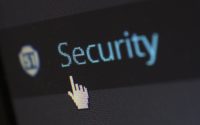3 Common Cybersecurity Mistakes to Avoid
Cybersecurity is more important than ever, and yet many people are still making the same avoidable mistakes. From stolen identities to compromised data, cyber mistakes have consequences. Here are three of the most common cybersecurity mistakes.
Being Lax With Email Security
Email is one of the primary ways that hackers gain access to systems and data. Phishing emails are a common way for hackers to steal credentials or infect systems with malware.
So being lax with email security can have serious consequences. Thankfully, there are a few things you can do to improve your email security.
Get DKIM and DMARC set up for your domain. DomainKeys Identified Mail (DKIM) and Domain-based Message Authentication, Reporting & Conformance (DMARC) are two email authentication standards that can help protect your domain from being spoofed.
Then, use a secure email service. Opt for services that offer end-to-end encryption for emails, meaning that only the sender and recipient can read the contents of an email.
Lastly, don’t click on links or attachments in emails from unknown senders. If you’re not sure whether an email is legitimate, err on the side of caution and don’t click on any links or open any attachments. You can always contact the sender to confirm that they actually sent you the email before opening anything.
Not Updating Software
Another one of the most common cybersecurity mistakes is not updating software. Outdated software is one of the main ways that cybercriminals gain access to systems and data. By keeping software up-to-date, you can help reduce the risk of cyberattacks.
Here are some tips for keeping up to date:
- Many software programs have the ability to update automatically. Set your software to update automatically so that you don’t have to remember to do it manually.
- As soon as an update is available, install it. Don’t wait, because the longer you wait, the greater the risk that you will be attacked.
- Only download updates from reputable sources. Cybercriminals often create fake updates that contain malware.
Using Weak Passwords
Most people know this one. A weak password can be easily guessed by a cybercriminal. So strong passwords are essential for keeping your data and systems safe.
Here are some tips for creating strong passwords:
- Use a mix of letters, numbers, and symbols. Create a password that is at least 8 characters long and includes a mix of upper and lowercase letters, numbers, and symbols.
- Don’t use dictionary words. Cybercriminals often use programs that try every word in the dictionary when they are trying to guess passwords.
- Don’t use personal information. Personal information such as your birthdate or your mother’s maiden name. This information can be easily found by cybercriminals.
- Change your passwords regularly.
- Don’t use the same password everywhere. Otherwise, you’re just making things easier for cybercriminals.
Cybersecurity is important to protect your data and systems. The financial, and emotional consequences of not securing things can be dire. By avoiding these common mistakes, you can help reduce the risk of cyberattacks.

